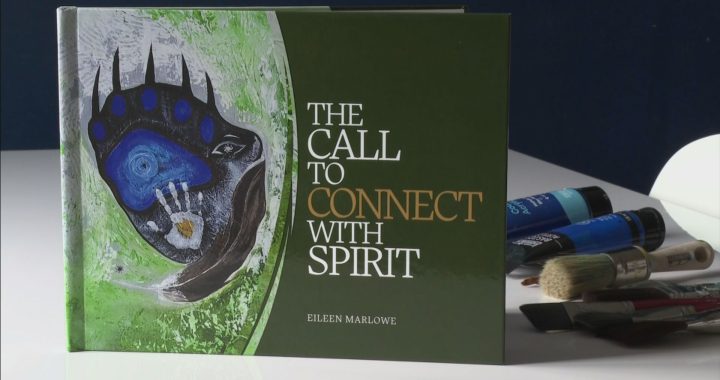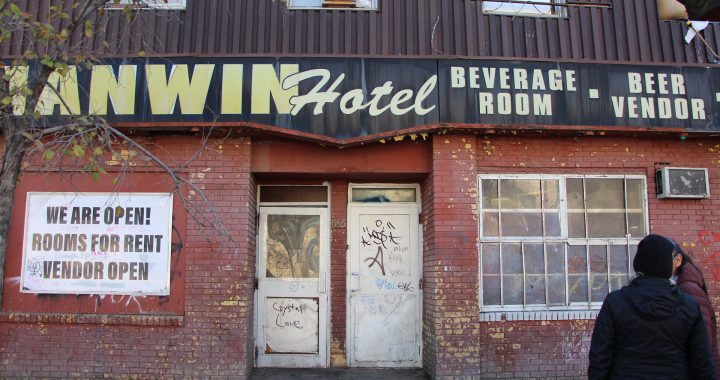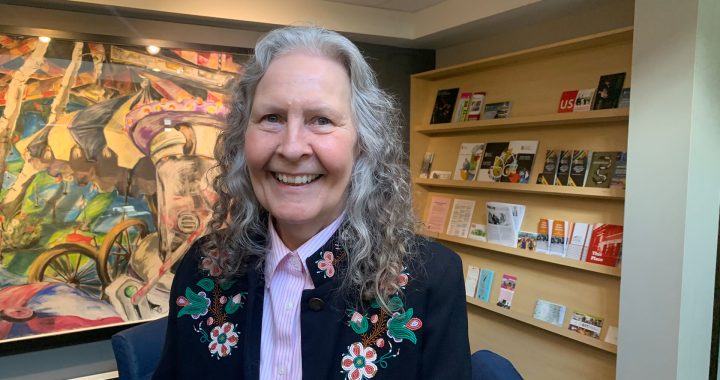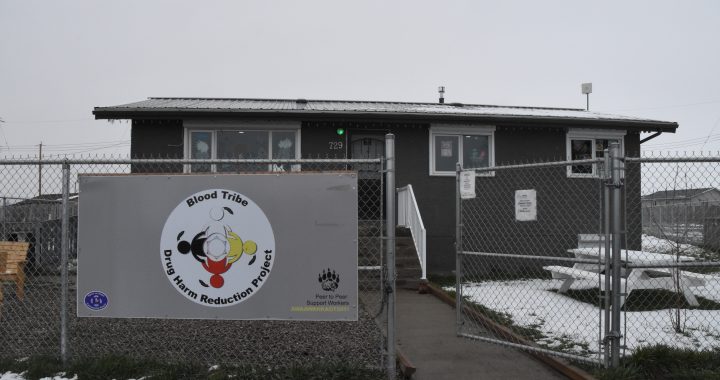(Cherry Smiley, co-founder of Indigenous Women Against the Sex Industry, was one of many Indigenous women outside of the Supreme Court of Canada in Ottawa Thursday who are against legalizing prostitution.)
Kenneth Jackson
APTN National News
Bridget Perrier was sold to men who wanted a child for sex.
She was 12-years-old at the time.
Not yet a teenager the Ojibway woman was put in brothels.
Perrier eventually got out of prostitution and now works to help girls like her do the same – free themselves of the clutches of pimps and men who buy their adolescence one at a time.
Perrier was in Ottawa Thursday on the steps of the Supreme Court of Canada where lawyers argued inside whether prostitution should be legalized.
That includes legalizing brothels and Perrier doesn’t agree they should.
But she doesn’t say this quietly.
On a megaphone her voice collides with the front doors.
“Canada needs to take a stand that we’re not going to live off the backs of our women, our vulnerable women who feel this is a choice. This is not a choice,” said Perrier, now 37, who co-founded the Toronto organization Sextrade101. “This is was not my choice, it was his choice.”
Perrier said Canada should adopt a similar policy as Sweden where the client can be charged but not the sex trade worker.
Outside the Supreme Court a debate unfolded.
On the left were a group of people, mainly women, against legalizing like Michele Audette from the Native Women’s Association of Canada.
On the other side were mainly women as well, including Bridget Tolley of Families of Sisters in Spirit.
The two Aboriginal organizations are divided on the issue.
Audette said legalizing prostitution does nothing to help Aboriginal women, particularly the hundreds that make up the missing and murdered so widely known as an epidemic in Canada.
“The position is clear…it’s not going to help Indigenous women,” said Audette, who argues Indigenous women will remain street-level sex workers. “What’s going to happen is a huge black market will be created and we’ll be at the end of an alley with no protection so I’m scared. Really scared.”
Tolley wouldn’t talk to APTN National News when approached but stood by Colleen Cardinal when she gave a short speech to supporters.
“For 500 years people have been making decisions for Indigenous women about us, without us and I’m tired of it,” said Cardinal. “I’m telling you right now criminalizing (prostitution) hurts Indigenous women.”
She believes, like many who want the law scrapped, making prostitution illegal pushes Indigenous women into dangerous situations.
The Ontario Court of Appeal agreed last year when they said struck down the law. The federal government appealed to the Supreme Court.
Under the Criminal Code, it’s not illegal to be a sex trade worker, or pay for it. But communicating for the purpose of it is.
Retired dominatrix Terri-Jean Bedford, former prostitute Valerie Scott and Vancouver sex worker Amy Lebovitch challenged the law with the help of Osgoode Hall law professor Alan Young.
Twitter: @afixedaddress









